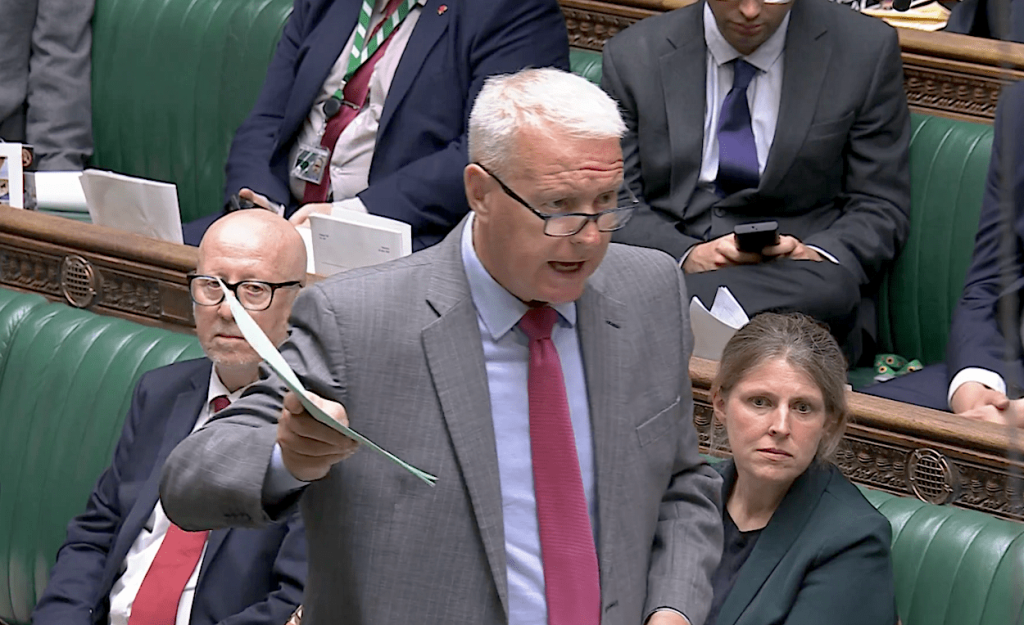The fleet of border control cutters responsible for patrolling our waters (and at times for dealing with irregular migrants on them) is showing its age and needs renewing. Unfortunately we now know that the exercise will cost £300 million rather than the original estimate of roughly £50 million, and will be delayed until at least 2030. Why has this happened? The reason is a big post-Brexit legal snafu which cuts across the government’s wish to ensure that the vessels are built here.
To keep it as simple as possible, an international treaty called the General Agreement on Tariffs and Trade, or GATT, prevents governments indulging in protectionism, but it has two exceptions. One is national security, allowing a government, for example, to insist on warships being home-built. The other is government procurement, though here governments can waive the right to discriminate in respect of particular items selected by them.
Before Brexit, the EU, then acting on behalf of the UK in matters relating to trade, had signed just such a waiver, agreeing that procurement of all ships except warships should be open to international competition. After Brexit, this came up for renegotiation. The government, free to set its own course, could have looked carefully at which items of government procurement should be open to competition and which not: it could easily have excluded things like border cutters. It did not. Instead, it simply took an easy way out and carried over the existing EU position.
This failure (whether attributable to Liam Fox as foreign secretary or his successor Liz Truss we shall probably never know) has now come back to bite the government with a vengeance. We cannot lawfully limit the building of the new cutters to UK yards unless we put just enough military hardware on them to trigger the national security exception to the GATT. This is what the government plans to do: hence the delay and the spiralling cost.
In the grand scheme of things this is not earth-shattering. True, the extra revenue of £250 million – roughly £4 for every inhabitant of these islands – would have come in useful. But the old boats (which will be between 25 and 30 years old in 2030) will no doubt soldier on, monitoring our borders more or less satisfactorily, and picking up, or not picking up, roughly the same number of people from overcrowded dinghies. Nevertheless, this story does have a number of morals which the new government should, but probably will not, heed.
One point is that, having by Brexit got the right to dictate our own destiny in commercial relations with third countries, we must be vigilant about using that right in the best interests of our own people. This includes recognising that just as our borders cannot and must not be open to all comers, the same goes for the still considerable purchasing power of the UK government and other entities here. For Border Force cutters the ship may have sailed (so to speak). But more generally, if we think it is in our interests to put particular limits on free trade, we should be prepared to do this, and have no compunction about it.
The second is a more general one. Having got back control of our foreign and security policy, we must be careful not to lightly sign it away in the way it now turns out that the Foreign Secretary did. There are all sorts of international treaties and agreements that HM government is under fairly constant pressure to sign, the impetus coming from a combination of pressure groups, UN apparatchiks, and members of the international legal fraternity. Their subject matter ranges from human rights to equality, from environmentalism to pandemic preparedness.
It is the way of such agreements, however, that each one tends to limit the government’s room for manoeuvre and give rise to arguments that, whatever the dictates of domestic politics, international law binds its hands to act in a particular way. In every case where we feel the urge to sign, we need to look carefully and sign only if we are convinced that any restrictions on our freedom of action are balanced by tangible benefits to our own electorate and UK Plc.
The third point is the UK government needs to regain the reputation for quiet efficiency and thorough homework that it once had. We do not know precisely why the then foreign secretary agreed, quite unnecessarily, to commit the UK government to open-handed internationalism in important parts of its international procurement. Possibly it was negligence or indolence in failing to read the small print and think through the consequences. Equally we cannot rule out the idea that the civil service failed to provide adequate advice, whether inadvertently or because of an instinctive unwillingness to upset the old EU ways of doing things. Whichever is right, this does not reflect well on us as a country.
The right to run our own affairs is vital. But it is not enough if we do not also take sufficient care to exercise it in our own interests. There is not much to be said for escaping the stifling influence of a technocratic EU only to find that our own ruling class is simply too incompetent to take advantage of our new freedom.







Comments